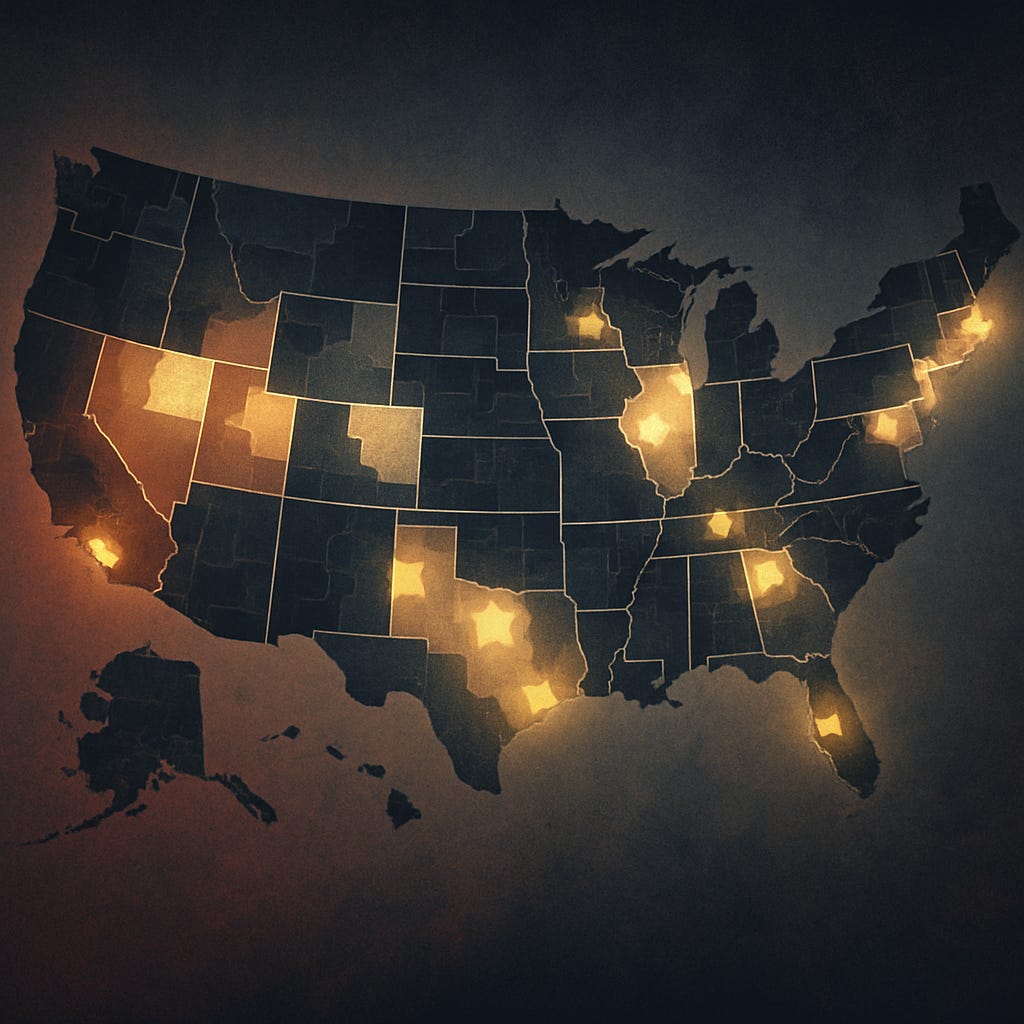The Rule of Law Is Dead as We Know It
In post-CASA America, your rights depend on your ZIP code.
Opinion by: Friendo Media Editorial Staff
There was a time I believed the law could save us.
I don’t mean that in some abstract, civic textbook sense—I mean I genuinely believed the courts, even flawed and politicized, were the last remaining guardrails. That when power grew too bold, too cruel, too reckless, the judiciary would pull the brake. That whatever horrors passed through Congress or the White House, a federal judge could step in and say: This far, no further.
That belief died last week.
In Trump v. CASA, the Supreme Court didn’t just erode a legal tool—it ended a constitutional era. The conservative majority struck down the ability of lower courts to issue nationwide injunctions, even in cases of blatant illegality. Going forward, judges can only protect the individuals or groups directly named in a lawsuit. Not the public. Not the Constitution. Just the plaintiffs.
The consequences are immediate and catastrophic.
Donald Trump issued an executive order that attempts to nullify birthright citizenship, gutting the Fourteenth Amendment by fiat. Multiple federal judges blocked the policy nationwide, because that’s what courts have done for decades when an executive order is clearly unconstitutional. The Supreme Court has now told those judges: you went too far.
Justice Sotomayor didn’t mince words in her dissent:
“The majority gives its judicial blessing to the Government’s attempt to resurrect a discredited interpretation of the Fourteenth Amendment. It permits the Government to flout this Court’s precedent and bypass the Constitution’s guarantee of birthright citizenship.” (p. 36)
The message is chilling: A president may violate the Constitution—but if he does it selectively, tactically, and avoids affecting the right plaintiff, he can get away with it.
Sotomayor again, more bluntly:
“The majority today grants the President extraordinary powers to evade judicial scrutiny, so long as he targets the right people.” (p. 43)
This is not just a ruling about birthright citizenship. It is about every abuse of executive power to come. It creates a legal map in which rights vary by geography. Protections apply to some, not others. The law no longer serves as a universal shield. It is now a patchwork of provisional legality—dependent on timing, luck, and litigation.
Justice Kagan, in dissent, captured the core betrayal:
“The Court’s embrace of piecemeal justice mocks the role of federal judges as guardians of the rule of law.” (p. 47)
Mockery, yes—but more precisely: surrender. This Court, stacked by a movement that no longer respects the pluralist experiment, has given up the central idea of American constitutionalism—that our rights are inherent and protected. Instead, it offers a version of justice so narrow, so individualized, it might as well be privatized.
And Justice Jackson, perhaps the last voice of moral gravity on the bench, said what many of us feared:
“This Court once stood in the path of tyranny. Today it steps aside.” (p. 51)
Let that land. The institution that desegregated schools, that affirmed marriage equality, that once forced a president to turn over tapes—has now declared that it will not act as a collective safeguard. It will not stop executive lawlessness for the public. It will only entertain relief for the few who make it through the door first.
This is not “modesty,” as the majority insists. As Sotomayor wrote:
“There is nothing modest about the majority’s decision to upset the longstanding remedial powers of federal courts to enjoin unlawful conduct.” (p. 44)
It is not modesty. It is abdication.
So what now?
We live in a legal landscape where rights are fractured. Where any president, Trump or otherwise, can issue orders that violate the Constitution and face no immediate judicial check. Unless you are one of the few named in the right lawsuit, you are on your own.
That’s not the rule of law. That’s a lottery.
And for those of us who believed—truly believed—that the law could stop a tyrant? That belief now exists in the past tense.
The rule of law is dead as we know it.
And what rises in its place will call itself constitutional, procedural, and orderly. It will have citations. It will have footnotes. And it will be terrifying.



